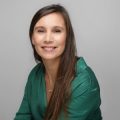Co/Lab
Totally Local
What if.. cities were fully self-sufficient?
What does a self-sufficient city look like in five years? That question marked the starting point of Totally Local, a lab initiated in May 2022 as a collaboration between Dutch Design Foundation and engineering consultancy Sweco. Three designers each explored a different essential element of urban infrastructure: food, energy, and water. Their concepts were presented during Dutch Design Week 2022. Each proposal offers a vision for a sustainable future, firmly rooted in the realities of today.
The world is changing rapidly. Climate extremes, resource scarcity, and a growing need for connection are prompting a fundamental rethink of how we design and organise our cities. Self-sufficiency is no longer a utopian dream, but a necessary shift. Sweco invited designers to return to the basics and develop forward-looking solutions that prioritise health, biodiversity, and social cohesion.
Circle Farming – Floris Schoonderbeek
Floris Schoonderbeek introduced the concept of Circle Farming – a circular agricultural model that makes optimal use of limited space in and around urban areas. Instead of traditional rectangular fields, Circle Farming features concentric strips of mixed crops. A smart farming tool, Het Kompas (“The Compass”), makes this system economically viable and manageable. The circular fields are based on principles of regenerative agriculture and can integrate other land uses such as housing or forestry, encouraging local engagement and resilient food systems.
The Material Energy Transition – Bram de Vos
Bram de Vos proposed a new perspective on the energy transition, focusing on the availability and origin of materials. His project, based at the Wielewaal estate in Eindhoven, combines both innovative and traditional technologies for local energy generation and storage. The concept offers greater autonomy and sustainability, while raising awareness of the material consequences of the energy transition.
Rainwater Storage – Tjeerd Veenhoven
Tjeerd Veenhoven developed a 3D-printed ceramic façade panel that captures rainwater during heavy downpours and gradually releases it through evaporation, providing natural cooling during hot periods. This innovative system contributes to climate adaptation in urban environments and can be applied in both new developments and the retrofitting of post-war neighbourhoods.
Totally Local demonstrates how design can support new, local systems to meet our basic needs – and how, together, we can start building self-sufficient cities.
Lab Manager

Justine Kontou
Questions? Concact the Lab Manager via mail!


